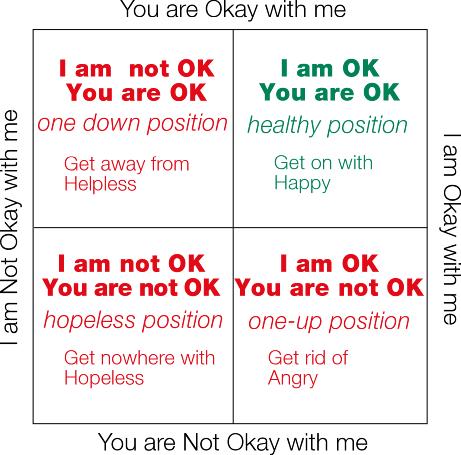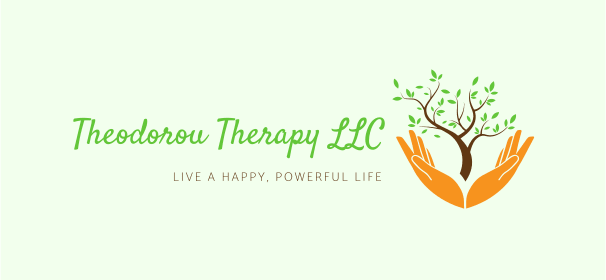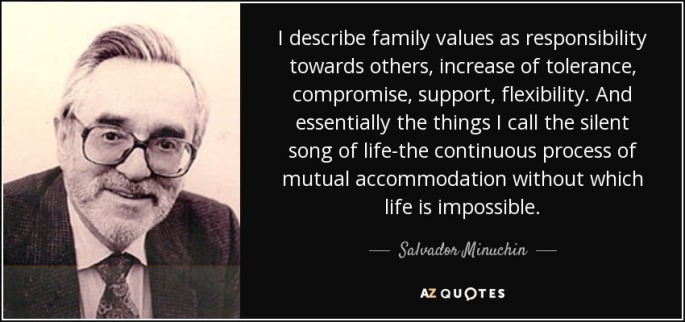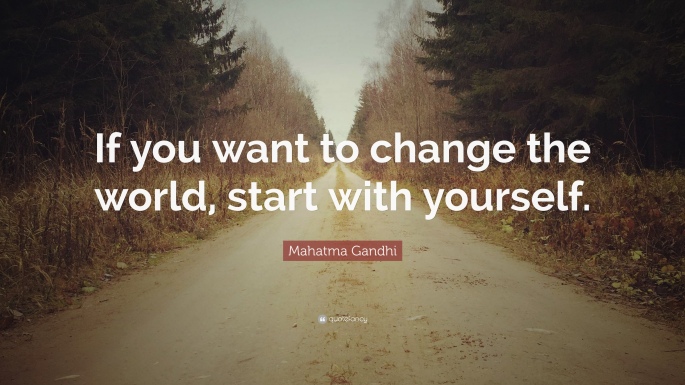Do you often feel taken advantage of by others? Is it a struggle for you to speak up for yourself? Do you find yourself saying yes when you want to say no? Do you feel the need to have other people’s approval?
Are you uncomfortable with asserting yourself? Do you get angry at how other people live their lives?
Do you find you allow yourself to be controlled by other people? Do you find yourself trying to control others? If you do, it is time to build up your emotional backbone.
I think there are many misconceptions about what an “emotional backbone” is.
Having an emotional backbone is pivotal to self-differentiation, a Bowen Family System concept. Self-differentiation is the ability to separate feelings from thoughts.
People who are poorly self-differentiated have difficulty separating their own feelings from other people’s feelings; they often look to other people to define how they think about issues, feel about people, and interpret their experiences.
A person who is self-differentiated has an emotional backbone–they do not look to their family, friends, or partner to define them. This means being able to have different values and opinions from other people in your life but be able to stay emotionally connected to them.
It is being able to lovingly detach from people who are not emotionally healthy and will inevitably impede on your growth and development. You cannot truly become self-differentiated and simultaneously participate in perpetuating dysfunctional relationship patterns.

Developing an emotional background when raised in a dysfunctional family system is often difficult for the individual. This is where counseling can be very beneficial to becoming someone with a strong emotional backbone.
An emotional backbone is a sign of strength of character. It is an unwillingness to be used, to be taken for granted, to be mistreated, to be abused, and a firm commitment to uphold one’s beliefs and values.
Do you have a strong emotional backbone? Ask yourself the following:
1)Do you resent others?
2)Do you often complain to no avail? Do your complaints fall on deaf ears?
3)Do you avoid conflict?
4)Do you say yes when you want to say no?
5)Do you feel taken advantage of?
6)Do you feel unappreciated?
7)Do you allow your anger to build and come out in unhealthy ways?
8)Do you compromise your self-care?
9)Do you people please?
10)Do you seek the approval of others?
11)Do you allow others to mistreat you?
These are a job signs you may be struggling with developing a strong emotional backbone.
Oftentimes, I believe people confuse being louder, being stronger, saying things more angrily, speaking up without knowing how the relationship is going to be effected by your words, or speaking from the unhealthy part of oneself is having an emotional backbone. This is not what having an emotional backbone is.
Yet this is common in a dysfunctional family system which plays out in ALL our relationships not just with members of our family of origin.
This type of dysfunction often serves the status quo instead of being a catalyst for healthy change in our lives, causing the same unhealthy cycles to play out over and over again over the course of one’s life.
Switching between persecutor and victim is common in a dysfunctional relationship. It goes round and round–certainly not my idea of having an emotional backbone. This is just people switching chairs at the same concert.
Persecutors criticize and blame the victim, can be very controlling, rigid, angry, and unpleasant. The victim see themselves as powerless, helpless, hopeless, and can want kid glove treatment from others.
A person with a developed emotional backbone sees themselves as able to determine the conditions of their life including what relationship patterns they will be an active participant in.

Counterdepedents are controllers. Very much the persecutors.
Codependents are people pleasers. Very much the victims.
Neither have healthy, strong emotional backbones.
Many people who grew up in dysfunctional families find themselves in relationships with codependents and counter dependents. Codependents are people who come from the mindset of “I am not okay, you ARE okay.” Counter dependents come from the position, “I AM okay, you are NOT okay.”
This is based on transactional analysis. Below are the different approaches:

Developing an emotional backbone requires a healthier approach, ie the “I am okay, you are okay” perspective. However, this is not likely with a person who is codependents or counter dependent.
I believe a strong, developed emotional backbone is crucial to having and maintaining healthy relationships. If you do not have an I am okay, you are okay approach you are going to perpetuate dysfunctional patterns in your relationships.
Most of us desire an emotional backbone–a strong sense of self, an ability to be less reactive, less shaken by conflicts, to be able to express our wants/need clearly, to stand firm with boundaries, to say no in a healthy way without guilty, want to reduce dysfunctional relationship patterns, to not undermine ourself, and to discover who we truly are.
To have a strong emotional background is to become WHO you truly are–not who others want or need you to need you to be. Only when you get to this point can you give and receive REAL love.
When we try to change ourselves from the outside in, we often feel defeated when we find ourselves back in our old ruts. We find we cannot keep the change going.
It can hard to catalyze change in our life and relationships if we are not self-differentiated. A person who is NOT differentiated will struggle with change.
For instance perhaps you are a person who knows YOU NEED to start to SPEAK up for yourself. Well-meaning family and friends often tell you to start speaking up for yourself. But for you, it has always been a struggle for you to speak your piece. The difficulty is there is likely an entrenched pattern that exists in your relationships, with relationship imbalances, thus it can be risky for you to start to assert yourself. IF you speak up, that can cause problems and difficulties, especially if you are not prepared for how to handle other people’s reactivity.
If you do not know what your next step is, if you cannot predict possible outcomes, often that one little tip “you need to speak up” is not helpful. You need to be OKAY with ANY possible outcome as controlling other people’s reactions is not realistic. Knowing we cannot control other people is just a given for a self-differentiated individual, but for a person who has not achieved this level of self-differentiation, they work hard to control other people’s reactions and the outcomes of situations.
For example, a wife goes home to her husband and says she needs some time for herself. She is always taking care of the house, the kids, working. She read she needs to “speak up for herself.” Her friends and family have been encouraging her to start “speaking up.” Her husband, on the surface, allows her the time and agrees she deserves it. The wife decides to plan a ladies night out for the first time in YEARS. But then her husband ends up calling/texting her numerous times that night when she is having said time for herself out of his own anxiety, ruining her alone time, and the wife says it just isn’t worth it and ends up giving up on getting her needs met. No more ladies nights out for her!
Standing up for yourself is not going to be effective if you have not ALREADY done the emotional legwork on developing an emotional backbone. There is A LOT more to developing an authentic emotional backbone and a lot more going on than just “speaking up for yourself.”
To build an emotional backbone, you need to be able deal with the fight between us AND us–not between us and others. Not everyone will agree with your priorities but when you have an emotional backbone you know that is their prerogative. It is not going to impact how your choose to conduct your life. You live your life according to your values and beliefs, not needing and requiring the validation of others. You know anyone worth having in your life will respect you and your values.
This is true self-differentiation. This is having an emotional backbone.
Power and growth needs to happen within me before I can expect others to take me seriously, to respect me, to hear me, things need to happen within me. Often we do not do this self work, we just expect it to happen with OTHER people and then wonder why it doesn’t.
You need to take yourself seriously before you can expect others to take you seriously.
Healing and recovering from your own demons will begin to stop the fight between you and you.
Others often take advantage of the internal fight we experience. The reason people who are self-differentiated can remain firm and set boundaries is because they do not feel too much guilt, shame, or fear abandonment because they already HEALED those parts of themself and their childhood wounds.
Feeling guilt, shame, and fear of abandonment are all signs of an undifferentiated individual.
Too much fear of rejection means you have work to do on yourself. The need for approval from others means you have a long way to go on your journey to self-differentiation.
How can you develop and strengthen YOUR emotional backbone?
One, we have to deal with the internal before we deal with the external. We have to do the work on ourself before we can begin to develop better relationships with other people in our life. Only when we have a healthy relationship with ourself can we have healthy relationships with others.
Second, it is important to recognize that to have an emotional backbone does not occur because we learned a few simple behavioral changes or assertiveness changes. To have long-lasting success, deeper issues and systemic stuckness needs to be addressed, which is why counseling can be such a real benefit.
Through counseling, you can learn to calm yourself in highly charged emotional relationship situations. If we cannot calm ourselves, we will fall back into the ruts of the past and our emotional demons will take ourself. Emotional regulation is a must to developing an emotional backbone.
Thirdly become an expert on YOU. I don’t mean become selfish. I mean become an expert on YOUR thoughts and emotions, NOT an expert on the thoughts and emotions of OTHERS. If you are caught up in trying to figure out what other people are thinking and feeling, you are in a state of enmeshment. It is NOT your job to figure out the emotional map of others.
Oftentimes, we are far too much an expert on others and NOT an expert on ourselves.
Fourth, we need to let go of our naive and immature illusions, which allows us to grow up emotionally (although many people don’t want to do this because it is hard to grow up emotionally). Our illusions keep us WEAK and SOFTEN our emotional backbone. Being emotionally grown up means managing our feelings, not trying to manage the feelings of others.
Having an emotional backbone means being willing and able to let go of getting our needs met by other people. To let go of our illusions that others can make us happy and fulfilled.
These illusions might be: I NEED my father to love me, I NEED my mother to be proud of me, I NEED everyone to get along to be happy and whole, I NEED my husband to think I am special to be happy, I NEED my kids to not hurt my feelings so I can feel good about myself, I NEED others to stop betraying me to be happy, I NEED others to follow my advice to feel happy, I NEED my wife to love me so I can be happy…..
Do any of these sound familiar? These are some of the illusions we have that keep up from having a good and healthy emotional backbone.
Emotional grown-ups own their own stuff and leave other people to take ownership of THEIR stuff. We feel empathy but know we cannot do the self-development work for others.
Fifthly, deal with any codependency issues, emotional fusion, enmeshment, all of which will be required to develop an emotional backbone.
People with an emotional backbone are able to love and care for themselves. They are flexible and do not need to be propped up by others.
Sixth, doing self-care can help develop an emotional backbone.
Self-care is an important part of our well-being.

Being a self-differentiated individual with an emotional backbone is the foundation of having healthy relationships with one self and others.
The truth is when you have a strong emotional backbone, you are not trying to control others. Simultaneously, you are also NOT allowing others to control you. Before you can be with someone with an emotional backbone, you need to develop your own.
Most people are unaware if they are indeed conducting their lives with a lack of self-differentiation. They are not even conscious of how fused their feelings are with other people’s.
People may mature physically, have careers, get married, have children yet STILL be an emotional child. This is what much of Murray Bowen’s research and literature posits.
Lacking an emotional backbone is often due to unresolved childhood issues, the defenses one develops in childhood, and ongoing emotional pain.
I truly believe developing an emotional backbone is the cornerstone to a happy and focused life. It is crucial for having healthy relationships with family, friends, and romantic partners.
People with an emotional backbone are rational, follow through on goals, have equality in their relationships, have final say on their decisions, respect other people’s decisions, and KNOW what they think and feeling outside of the noise and chatter from others.
If you feel you are struggling with developing an emotional backbone, counseling can be a great place to start the process.
To schedule a counseling session with me:
Erin Doyle Theodorou, M.Ed, LPC, NCC
theodorou therapy LLC
590 Franklin Ave. Suite 2, Nutley, NJ 07110
973-963-7485
etheodorou@theodoroutherapy.com




 Once again, please excuse grammatical, writing errors. This blog is more about the content (I am not Charles Dickens here).
Once again, please excuse grammatical, writing errors. This blog is more about the content (I am not Charles Dickens here).



